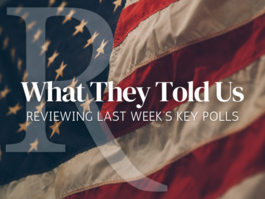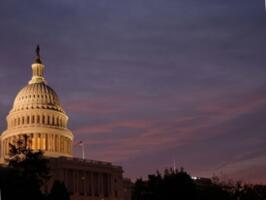47% Say U.S. Economy is Fair, 49% Disagree
American voters are evenly divided as to whether or not the economy is fair.
A new Rasmussen Reports national telephone survey finds that 47% believe the economy is fair and 49% disagree. Those figures include nine percent (9%) who say it is Very Fair and 13% who see the economy as Not at All Fair. (To see survey question wording, click here.)
(Want a free daily e-mail update? If it's in the news, it's in our polls). Rasmussen Reports updates are also available on Twitter or Facebook.
The national survey of 1,000 Likely Voters was conducted on December 12-13, 2012 by Rasmussen Reports. The margin of sampling error is +/- 3 percentage points with a 95% level of confidence. Fieldwork for all Rasmussen Reports surveys is conducted by Pulse Opinion Research, LLC . See methodology.














